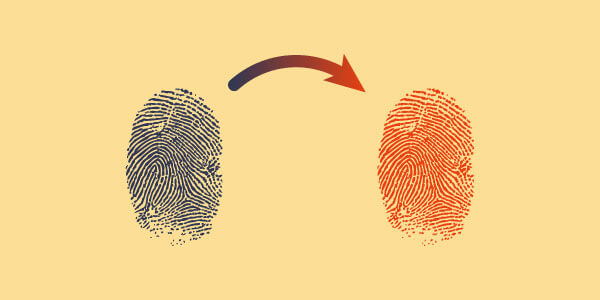
Identity fraud is a big problem in the UK. As of April 2023, it made up almost 70% of all cases filed with the National Fraud Database.
And it’s only projected to get worse. In 2022, cases of identity fraud went up by 23% when compared to 2021.
But why is it getting worse? And what can you do to protect yourself?
Well, before we delve into that, let’s start with the basics…
What is identity fraud?
The Metropolitan Police have one of the best definitions of identity fraud: “…the use of a person’s stolen details to commit crime.”
It’s as simple as that.
Your personal details could be any number of things. Your phone number, address, name, financial information. Anything that’s unique to you and can be used to spoof you.
They’ll then take this information and use it to commit fraud.
One day, they might open a fraudulent credit card account in your name. The next, they might sign up to a mobile phone contract and run up the bill.
Financial crimes like these make up most identity fraud. The worst part about it? The victims normally only find out once they receive a bill in the post. Or happen to check their credit score.
Sound scary? Don’t worry, there are some simple ways to protect yourself against identity fraud…
Staying one step ahead
Criminals are turning to identity fraud more and more for one simple reason: it works.
Once they’ve committed the crime, it’s difficult to track them down. And they can find victims with relative ease.
That’s why it pays to know how to protect yourself against identity fraud.
First, we’re going to point back to the Metropolitan Police. They have an amazing guide on preventing identity fraud that you should read.
We’ll sum up the key points here, though:
- Protect your address by opting out of the ‘edited’ electoral roll when you register to vote. This helps to prevent unsolicited post. You should also make sure your post is being delivered to a secure area/post box. Shredding letters before you throw them away can help protect against identity fraud too.
- Protect your finances by regularly checking your bank statements for unusual charges. Report any unusual activity you notice to your bank. Sign up for two-factor authentication for all of your bank cards too, so you have to approve online purchases.
- Protect your phone by never replying to unsolicited text messages and not giving sensitive information to unsolicited callers.
- Protect your computer by having up-to-date antivirus and firewall software, as well as making sure your operating system and web browsers are on the latest version. Always double-check web addresses for a padlock and ‘https’, especially when accessing your online banking or making purchases.
There’s a lot more you can do, though.
For more specific advice, have a look at our ransomware, social engineering, and data breach blogs.
They have extra info that can help protect your business against other types of online identity fraud.
Cifas is also an invaluable resource for anything to do with identity fraud.
Cover yourself
If you’re a customer of ours, the advice for identity fraud applies to calls, emails, and post you receive from us too.
When you receive an email from us, double-check the sending address. It should always come from a ‘policybee.co.uk’ email address. Any change in this could mean a fraudster is trying to trick you.
You should also carefully check any links in emails from us before clicking on them. If you’re ever unsure, visit our website using a search engine instead.
Finally, never send us your card details by email. We will never ask you to do this. If you receive an email that appears to be from us and it asks you to send your card details to us by email, please assume that it’s fraudulent.
If you ever have any concerns about fraudulent emails or communications, give us a call on 0345 222 5391. We take these issues seriously and will do anything we can to help.
Image used under license from Shutterstock.
freelancersmanaging riskrunning a business
